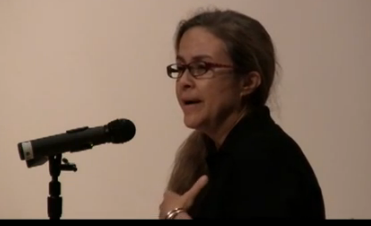A Dialogue or Conversation Poem: A Prompt for Writing and Healing
In a classic dialogue poem, as I understand it, you create two characters and they carry on a conversation—in poetry. A variation on this theme—a conversation poem?—is a writing idea I’ve shared with my students. I’ve been thinking for a while now that this existed somewhere in the world, and it probably does, but then again it’s possible I may have made it up. In any case, the way I’m thinking about a conversation poem is you actually write your lines between the poet’s lines—in a conversation. I think the best way to begin this is to first copy the poem out, leaving spaces after every second or third or fourth line. You could do this on paper or on a computer document. And it could happen that as you were writing you would find yourself stopping to ask a question or to respond—and then you could put your questions and responses in the spaces between lines. Maybe in italics? Or indented? And then you could begin to work your way toward some back and forth and see what happens. It’s yet another way of responding to a poem. Of imprinting a poem. Of making it your own. It could look something like this, using Mary Oliver’s “Journey” as an example: One day you finally knew what you had to do, and began, though the voices around you kept shouting their bad advice your response . . . something about those voices that are shouting, the voices you imagine and what advice they are actually shouting and what is it that makes the advice so bad or wrong. what is precisely the wrong advice now? though the whole house began to tremble your response . . . what you see what you wonder about when you picture the whole house trembling or whatever it is you imagine when you consider that a single action you make could cause an entire house to tremble. what’s it like to have that kind of power? and you felt the old tug at your ankles. “Mend my life!” each voice cried. But you didn’t stop. your response . . . oh, now the voices in the poem are using actual words and they are not just asking they are demanding–they require mending. And what does it feel like not to stop for them? Or maybe would you? Whose voice would cause you to stop? Whose wouldn’t? These are just a couple ideas. Of course you could do it differently. I’m just remembering now where I first got the idea for this. It was when I was teaching writing at Prodigals Community, a residential recovery center. A woman, M., wrote a poem and when I read the poem I was very taken with it and I ended up asking her a few questions about it. She didn’t answer my questions just then, but she wrote the answers to my questions as new lines in the poem! She inserted the new lines into the document in italics—between the old lines and shared it with me the next week. There was something so powerful about this. Like revision happening actively on the page. Like a conversation with me as reader happening inside the poem—or a conversation with her own self. See also Healing poetry The Journey...
read more




